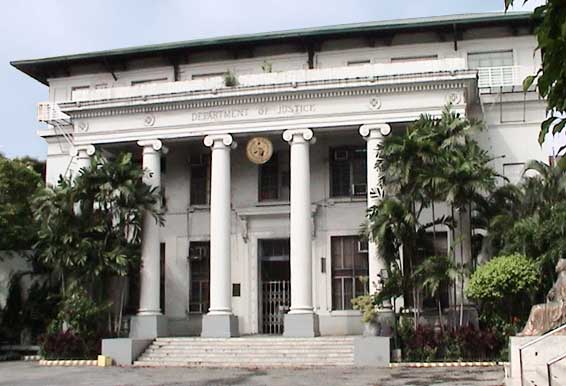
MANILA — The Department of Justice (DOJ) is saying that smuggling may be classified as “economic sabotage”.
“This Department recognizes the fact that our country is in need of a new Tariff and Customs Law that will be responsive to the demands of modern trade and commerce, and in particular, address the problem of rampant smuggling of goods, which not only hampers the businesses of importers but also greatly contributes to the nation’s economic instability,” Justice Secretary Leila M. De Lima said in her legal opinion dated Sept. 5, 2014.
De Lima issued the legal opinion in response to the request of Sen. Juan Edgardo “Sonny” M. Angara, Chairman of the Senate Committee on Ways and Means, which received the same on Sept. 22. 2014.
The legal opinion pertains to Senate Bill No. 2348, “An Act Amending Presidential Decree No. 1464, otherwise known as the Tariff and Customs Code of the Philippines, to define smuggling as an act that constitutes economic sabotage, to provide the appropriate punishment and penalties, and for other purposes”.
De Lima noted that the proposed legislative measure, which seeks to amend the present Tariff and Customs Code of the Philippines, is consistent with the Constitution and existing laws.
”As mandated by the 1987 Constitution, Congress has the authority to introduce statutory changes to laws, including revenue and tariff bills, when it deems that such legislation does not anymore serve its purpose,” De Lima stressed.
She pointed out that the DOJ is of the opinion that such offense may be appropriately classified as constituting “economic sabotage” and may be penalized as proposed in such measure.
”We believe that the Constitution vested upon Congress the plenary power to propose, enact, amend and repeals laws and a long list of jurisprudence support that principle. In particular, we cite the concurring opinion of Justice Ynares-Santiago in the case of Province of North Cotabato, et al. vs. GRP Peace Panel on Ancestral Domain, et al,” De Lima said.
The DOJ Chief also suggested that if the crime falls within the category of “economic sabotage”, the offender should be meted with the maximum penalty of life imprisonment or reclusion perpetua.